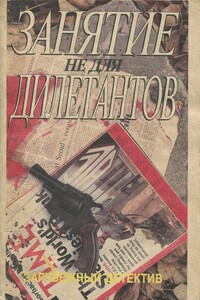The Human Flies - [17]
‘Nothing has interested Patricia more in recent years than unsolved crimes. She has read dozens of books on the history of crime, and at least a hundred detective novels. She has on more than one occasion predicted the outcome of big criminal cases on the basis of what she has read in the papers. She is particularly interested in the murder in Krebs’ Street. Partly because Harald Olesen was a friend of the family and partly because of the extraordinary circumstances surrounding the case. She has questions and comments that I cannot answer – including an entirely plausible solution as to how the murderer managed to leave the flat. But for all I know, it is perfectly possible that you and your colleagues have solved the mystery already and will shortly be making an arrest…’
He looked at me in anticipation. I tried to shake my head without appearing to be desperate.
‘In that case, I would be immensely grateful if you could discuss the case with Patricia for a short while, in all confidentiality of course. It need not take more than fifteen minutes of your time, and could be of considerable assistance.’
I thought quietly to myself that perhaps mandatory limits should be introduced for how highly a father could praise his child, but by now my curiosity about young Patricia and her world had been piqued. And I was no less curious as to how she had solved the mystery of the murderer’s disappearance, while I had found no solution. So I gave a friendly smile and replied that I would be more than happy to set aside fifteen minutes or so in all confidentiality to test the theory.
Professor Borchmann smiled, pressed my hand and, without further ado, rang a bell. A young, blonde maid in her twenties appeared a few seconds later. ‘Please show my guest into Miss Patricia Louise in the library straightaway,’ the professor said. Then he turned back to the paperwork on his desk with characteristic efficiency.
IV
Patricia Louise Isabelle Elizabeth Borchmann now lived in a tidy and serene little kingdom one storey above and a garden away from a grey and busy street in Oslo. She was sitting waiting at a table set for two, in the middle of a room that was larger than many of the gymnasiums that I have been in, surrounded by more books than in all the private libraries I have ever seen.
Young Patricia was in no way physically impressive. I guessed she would be a good head shorter than me if she could stand up, and her body was so slight that she could barely weigh more than seven stone. The family likeness with her father was undeniable. It was there in the black hair, but more than anything in her stern face and unwavering gaze. I couldn’t recall having seen a young girl with such a strong face – or any woman, for that matter.
As if by some unspoken agreement, we did not shake hands. I just nodded, and she pointed brusquely to a large armchair directly opposite her. She herself was sitting in her wheelchair, with a television set, as well as a wireless and stereo player, within reach. The table between us was large and obviously necessary. To her left was a telephone of the very latest model. In front of her, there were three ballpoint pens and a notebook, as well as a pile of at least six of that day’s newspapers. Judging by the selection of papers, Patricia Louise I. E. Borchmann was open-minded and non-party political: she read everything from the reactionary Morgenbladet to the communist rag Friheten. On the right-hand side of the table lay three books, with bookmarks. The one on top was a French book, the title of which I could not understand, the one in the middle appeared to be a university textbook on sociology, and the one on the bottom was a collection of short stories in English by Stanley Ellin, of whom I had never heard. There was a large jug of water in the middle of the table, as well as a pot of coffee and a pot of tea.
‘Welcome. I am extremely grateful that you can give me a few minutes of your time. Do you have any particular preference when it comes to refreshment?’
I swiftly declined.
‘In that case, that is all for now, Benedikte. I will ring should there be anything else.’
The maid bobbed a silent curtsy and quickly retired. Patricia Louise I. E. Borchmann was a lady of principles and discretion. She did not say a word until we were alone in the room. Then, like her father, she got straight to the point.
‘I don’t want to waste any more of your undoubtedly precious time than necessary. The picture given in the papers of the residents of the building is somewhat incomplete, so if I am to say anything of any value, I may need to be updated. The newspapers all mention the unsolved mystery of how the murderer could escape the flat undetected. The windows were closed and locked from the inside, and there were no broken panes to indicate that the shot came from outside. The door has a snib lock, which means that the murderer could have left the flat and locked the door behind him. But the other residents were at the door so soon after the shot that no one could have escaped that way unnoticed. Is that, in brief, a fair description of the mystery as to how the murder was committed? And is it still an unsolved problem for you and the investigation?’
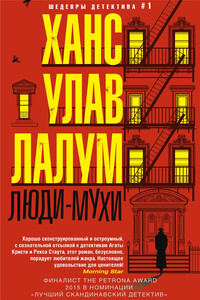
Убит бывший лидер норвежского Сопротивления и бывший член кабинета министров Харальд Олесен. Его тело обнаружено в запертой квартире, следов взлома нет, орудие убийства отсутствует. На звук выстрела к двери Олесена сбежались все соседи, но никого не увидели. Инспектор уголовного розыска Колбьёрн Кристиансен считает, что убийство, скорее всего, совершил кто-то из них. Более того, он полагает, что их показания лживы.
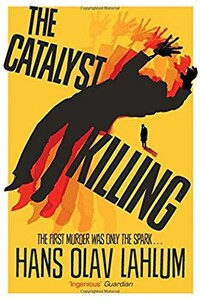
The third mystery in the hugely compelling, bestselling international crime series from Norway's answer to Agatha Christie, Hans Olav Lahlum, The Catalyst Killing will have you guessing to the final clue. The first murder was only the spark… 1970: Inspector Kolbjorn Kristiansen, known as K2, witnesses a young woman desperately trying to board a train only to have the doors close before her face. The next time he sees her, she is dead… As K2 investigates, with the help of his precocious young assistant Patricia, he discovers that the story behind Marie Morgenstierne's murder really began two years ago, when a group of politically active young people set out on a walking tour in the mountains.
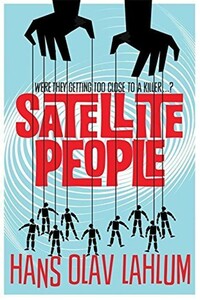
A gripping, evocative, and ingenious mystery which pays homage to Agatha Christie, Satellite People is the second Norwegian mystery in Hans Olav Lahlum's series. Oslo, 1969: When a wealthy man collapses and dies during a dinner party, Norwegian Police Inspector Kolbjorn Kristiansen, known as K2, is left shaken. For the victim, Magdalon Schelderup, a multimillionaire businessman and former resistance fighter, had contacted him only the day before, fearing for his life. It soon becomes clear that every one of Schelderup's 10 dinner guests is a suspect in the case.
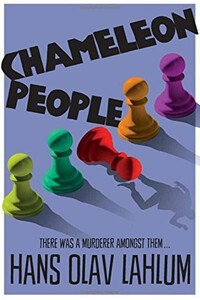
From the international bestselling author, Hans Olav Lahlum, comes Chameleon People, the fourth murder mystery in the K2 and Patricia series.1972. On a cold March morning the weekend peace is broken when a frantic young cyclist rings on Inspector Kolbjorn 'K2' Kristiansen's doorbell, desperate to speak to the detective.Compelled to help, K2 lets the boy inside, only to discover that he is being pursued by K2's colleagues in the Oslo police. A bloody knife is quickly found in the young man's pocket: a knife that matches the stab wounds of a politician murdered just a few streets away.The evidence seems clear-cut, and the arrest couldn't be easier.
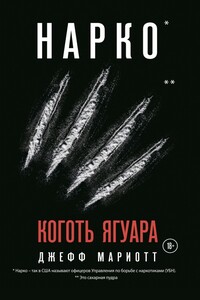
Первый официальный роман по мотивам культового сериала «Нарко» от Netflix. Удивительно подробное и правдивое изображение колумбийской наркоторговли изнутри. Хосе Агилар Гонсалес – sicario, наемный убийца медельинского картеля. Он готов обрушиться на любого врага Пабло Эскобара – и сделать с ним все, что прикажет Патрон. Он досконально изучил весь механизм работы кокаиновой империи, снизу доверху. Он глубоко проник в мысли и чувства Эскобара. Он знает, как подойти к нему даже с такой просьбой, которая другим показалась бы самоубийством, – и получить желаемое.
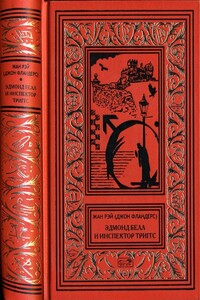
В новом томе собрания сочинений классика бельгийской литературы Реймона Жана Мари де Кремера, более известного под литературными именами Жан Рэй, Джон Фландерс и Гарри Диксон, вошли девять повестей из его почти неизвестного за пределами Бельгии цикла. Цикл посвящен приключениям потомка одного из эпизодических героев Артура Конан Дойля, упомянутого в рассказах о Шерлоке Холмсе — профессора Джо Белла. Перед нами новый герой, шестнадцатилетний Эдмонд Белл, столь же юный, как Рультабий из «Тайны желтой комнаты» Гастона Леру, столь же проницательный и столь же блистательный.
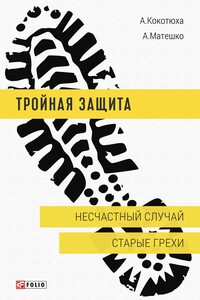
В причудливый узор сплетаются судьбы героев романа: адвоката-красавицы Тамары, безнадежно влюбленного в нее аналитика Боба, оперативника Вохи и бизнесмена Виктора Новака. Любовь, ненависть, соперничество, случайные встречи и взаимные обиды связывают этих людей, а объединяет единая цель: поиск серийного убийцы. «Несчастный случай» — так называется новый роман, раскрывающий обстоятельства пятого дела из серии «Тройная защита». Прошло несколько лет после смерти мужа Тамары Макса, друга и коллеги Боба и Вохи.
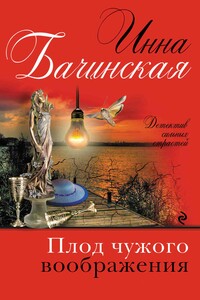
Летними вечерами в дачном поселке собиралась дружная компания хороших знакомых – пока к ним не присоединились новые соседи. Это неприятные, грубые люди – сильно пьющий художник Денис, его вульгарная супруга Иричка и ее тихая, незаметная сестра Зина. Как-то вечером, когда компания сидела во дворе, нарядная Иричка прошла мимо, небрежно помахав присутствующим, а вскоре ее труп нашли в ближайшем овраге…Полиция начала расследование, но соседи решили не оставаться в стороне и попросили Олега Монахова, называющего себя ясновидящим и волхвом, присоединиться к поискам убийцы в частном порядке…
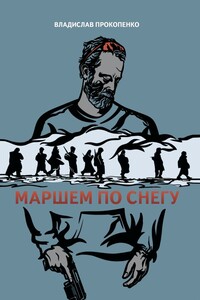
Политическая ситуация на Корейском полуострове близка к коллапсу. В высших эшелонах власти в Южной Корее, Японии и США плетется заговор… Бывших разведчиков не бывает — несмотря на миролюбивый характер поездки в Пхеньян, Артем Королев, в прошлом полковник Генштаба, а ныне тренер детской спортивной команды, попадает в самый эпицентр конфликта. Оказывается, что для него в этой игре поставлены на карту не только офицерская честь и судьба Родины, но и весь смысл его жизни.
